
- Details
- By Szőcs Boróka
Boróka, originally from Transylvania, Romania, is a biologist and teacher, and the President of the Biomimicry Innovation and Education Association (Biomimicry Hungary). She has a strong background in community leadership and education. Her work focuses on fostering innovation and sustainability. Currently, she is on a world trip, exploring new perspectives and experiences. She sent this report from New Zealand.
There is a pink folder at the bottom of my closet – carefully stored. On the folder it says: Leadership 2014, Marosvásárhely. This was my first leadership training, at the age of just 16. The training had been organized by Nagy Gizella from UNOSZ, the Unitarian Women’s Organization in Romania, and ICUUW. Tina Huesing, current president of ICUUW, was one of the presenters. I remember the faces, the laughter, the confident voices – each of their stories shaped me in some way. Perhaps this was when I first began to truly understand the unique flow of women’s thinking and actions, and how it differs from the way men approach the world.
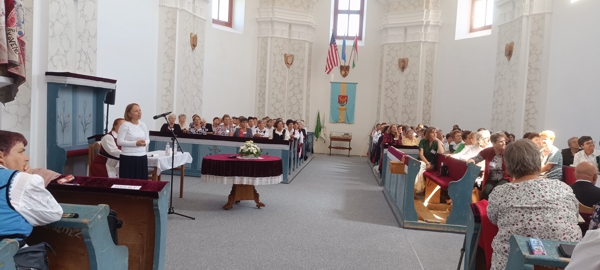
- Details
- By Rev. Adél Nagy
Women's groups are the driving force behind the congregational activities in most Unitarian congregations in Transylvania. The organizational and operational life of UNOSZ has returned to normal after the pandemic and local women's groups have resumed their activities that span the church year. Women's work comprises different activities, such as celebrating Mardi Gras in February. Some groups organize costume parties, and they bake the traditional pánkó (doughnuts) or cook corn. Other activities during the year include Women's World Prayer Day in March, International Women's Day, and Easter activities, such as egg painting, as well as Mother's Day celebrations in May.
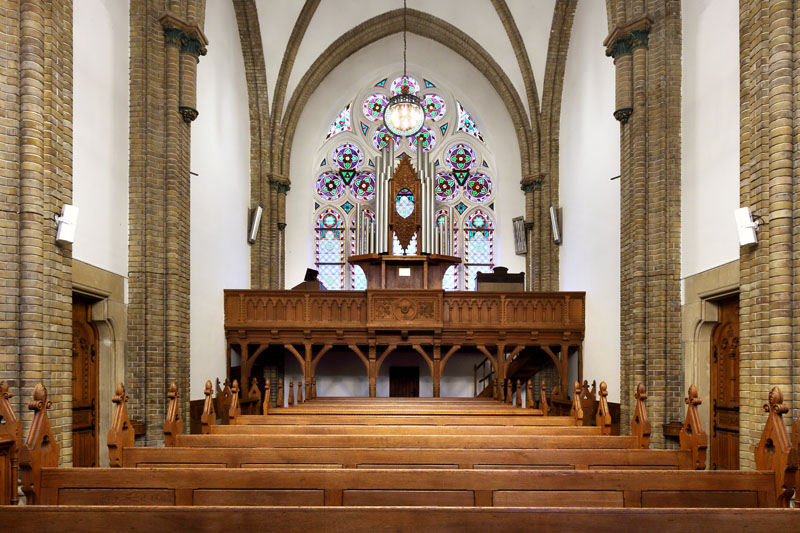
- Details
- By Bartha Mária Zsuzsánna, President of MUNOSZ and Secretary of ICUUW
It is a joy to be together in person. After much correspondence, phone calls, and computer work, we were finally able to meet in person at our annual general meeting held on September 27. On this occasion, our Women's Association enjoyed the warm hospitality of the Budapest Unitarian Church. The male members of the local council cooked, and the young people served, in a charming manner. So we, the women, were able to meet peacefully in the sanctuary.

- Details
- By Mária Zsuzánna Bartha, Hungary
On Saturday, August 30th, Székelyszentmihály hosted this year's conference and general meeting of the Unitarian Women’s Association of Romania (UNOSZ). Over 250 women were present in the church.
Following the flag procession and festive church service, the morning was made memorable by welcoming speeches, the presentation of the traveling banner, and a colorful program put on by the locals.
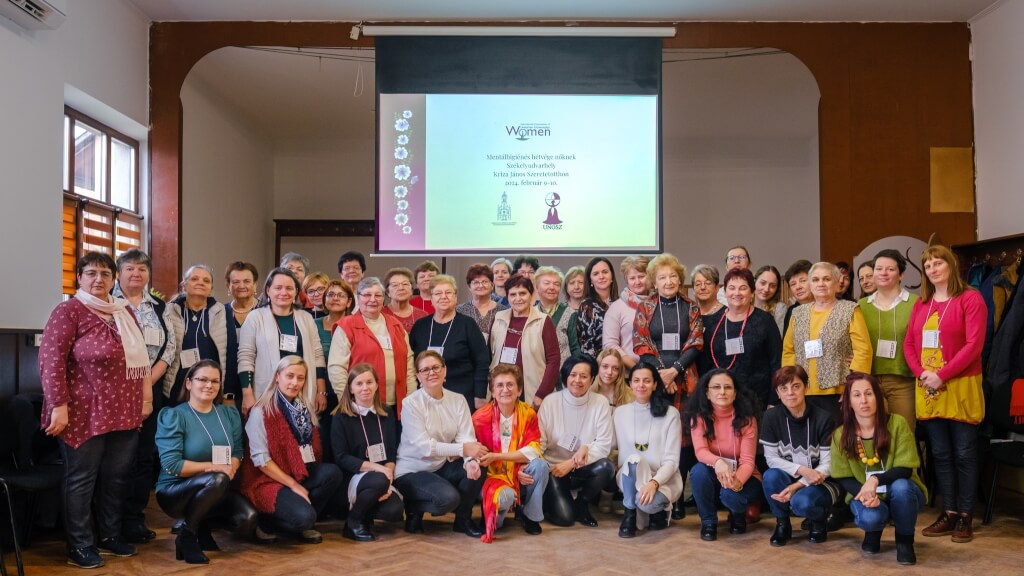
- Details
- By Gyöngyi Máthé, member of the Unitarian Women's Association of Gyergyószentmiklós/Gheorgheni, Romania
With the positive attitude suggested by the title above, we gathered in Marosvásárhely/Târgu Mureș on November 17, 2023. The two-day mental health training - organized by ICUUW in collaboration with UNOSZ (Unitarian Women’s Association of Romania) thanks to a generous grant from the UU Funding Program - provided very meaningful and spiritual experiences.
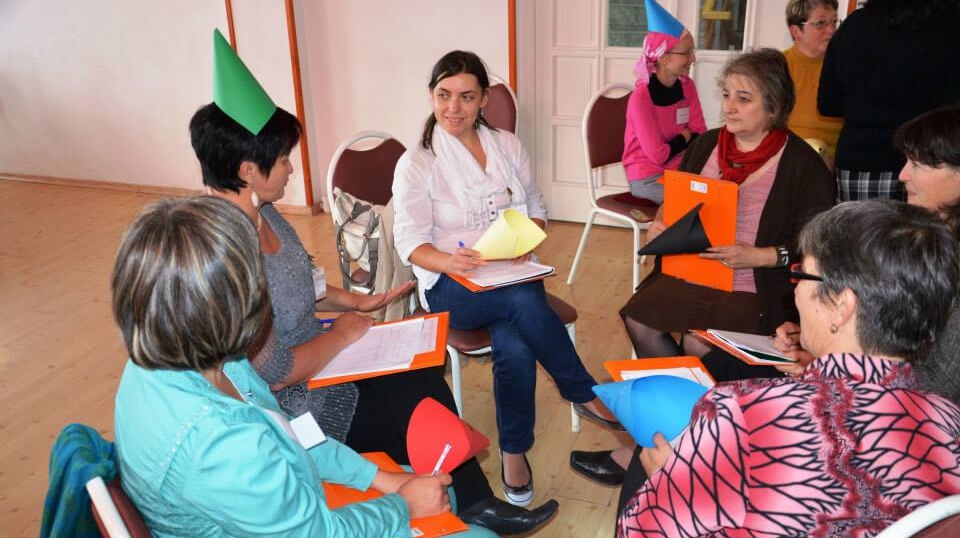
- Details
- By ICUUW Staff
On-the-Ground Partner
ICUUW's main partner in Romania is UNOSZ, the National Association of Unitarian Women of Romania; and in Hungary, MUNOSZ, the National Association of Unitarian Women of Hungary. In August 2013, ICUUW signed a formal agreement with UNOSZ, laying out areas of collaboration and specific organizational sharing.
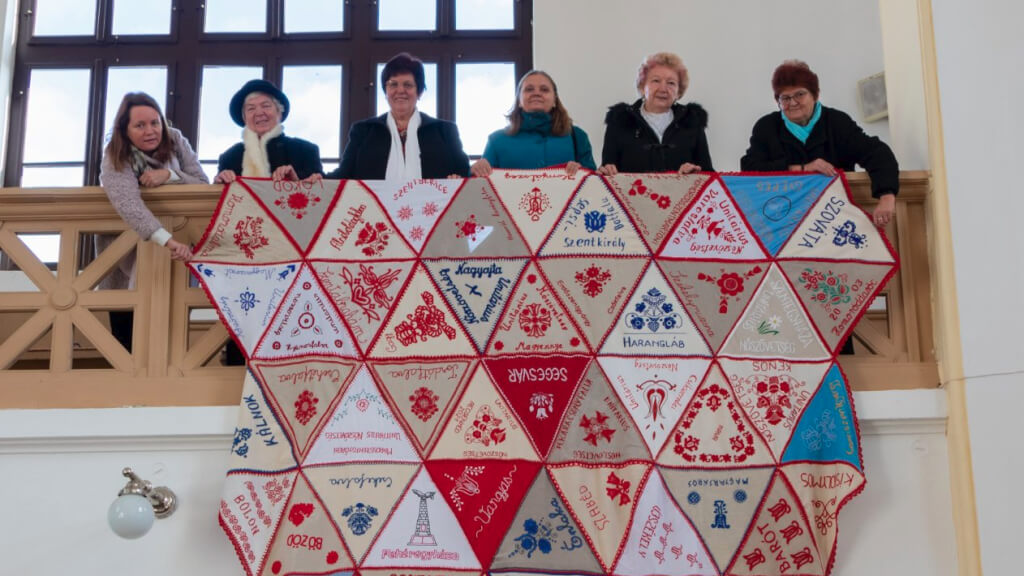
- Details
- By Melinda Simó, leader of the Udvarhely District Women’s Association
A well-known symbol of UNOSZ, the Unitarian Women’s Association of Romania, is the “wandering tablecloth.” As the name indicates, the tablecloth “wanders” from one place to the next: from the site of the UNOSZ annual meeting and conference one year to the location of the following year’s event. The tablecloth is composed of embroidered triangles sewn together, made by and representing each local women’s association. Today, the tablecloth contains approximately 120 triangles.
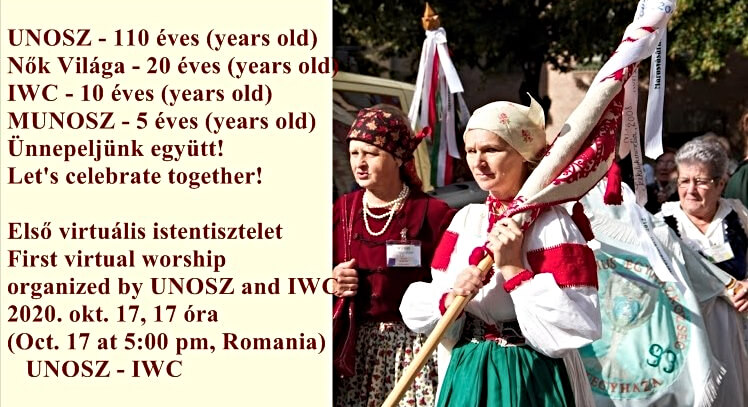
- Details
- By ICUUW Staff
On Saturday, October 17, more than 100 people participated in the first virtual service organized by UNOSZ, the Unitarian Women’s Association of Romania, in collaboration with ICUUW. This special occasion was a wonderful testimony to the strong ongoing collaboration between ICUUW and UNOSZ.
The virtual event on Zoom, moderated by Rev. Júlia Jobbágy, drew people from all over the world, from Hungary to England to the United States; in several village churches across Transylvania, the service was projected onto big screens. The service was conducted in Hungarian, but the English translations of the texts were provided in a chat box.
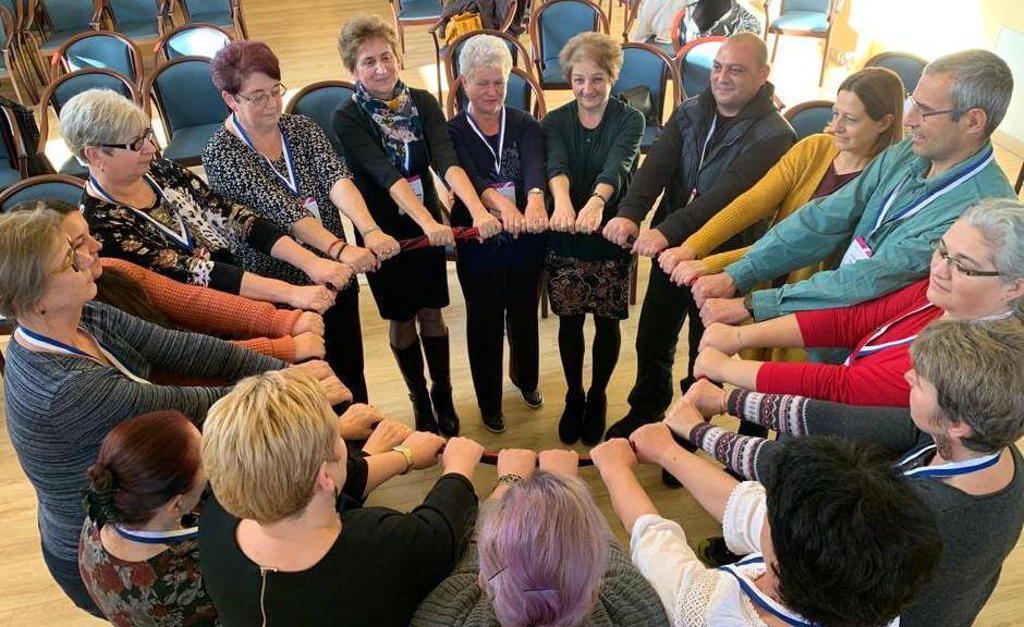
- Details
- By Enikő Benedek, Romania
I took part in a program focusing on awareness and prevention of domestic violence, organized by the UNOSZ and jointly sponsored by the Gábor Bethlen Fund and the ICUUW, November 29-December 1, 2019.
Why did I attend this seminar focusing on such a sensitive issue? Obviously, I have heard much about intimate partner violence. We all carry with us family patterns. I must admit that in my childhood I fought with those the same age as I. I slapped a boy when I was a university student, who dared grope me in a crowded bus. An angry person is capable of everything: slap, strike, scratch, bite, and even kill.
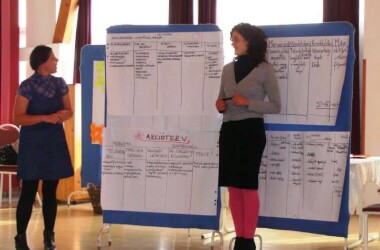
- Details
- By ICUUW Staff
Even though I was able to attend only one leadership training, it was very important to me.
I came to the leadership session for two reasons: as a university student, I became more acquainted with the term “leadership,” and I was hoping to deepen my understanding and gain more practical skills; and secondly, I was in need of a Christian community that could thaw my spiritual ice age.